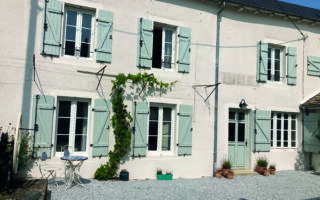French School Days: Holidays, Lunches, and La Rentrée
Essential Reading


Many aspects of French school life will be similar to what you are used to back in your own country, but there are still some important differences to be aware of. Here’s what you need to know about French schools, from school hours and holidays to school lunches and La Rentrée.
School Equipment, Uniforms, and ‘La Rentree’
If you a lover of stationery, one thing to look forward to in the French school calendar is the equipment list for the new term, or ‘La Rentree’. Parents in France are expected to buy exercise books, text books, novels, art equipment, school bags, sports kit and an array of general stationery as well as on some occasions and much to the surprise of many; boxes of tissues, slippers, a water goblet, toothbrush and toothpaste!
Younger children can be expected to wear slippers inside school (not just on rainy days) and to brush their teeth after eating lunch. It all makes absolute sense when you think about it!
In state schools and in most private schools, children do not wear a uniform which can be quite liberating for some.
French School Days: Hours, Lunchtime, and Breaks
The French school system is split into Nursery (maternelle) and Primary (primaire) schools, followed by Secondary School (college) up until the age of fifteen, then Vocational College (lycee) and University. See our guide to French school grade equivalents for comparisons to the US and UK education systems.
The school day can be an early start with some Secondary pupils beginning their day at 8am. However, do not forget there may well be a longer lunch break – this is France after all and La Cantine is a serious business. Three courses can be a minimum expectation depending on your region. Generally speaking, there may be a vegetable-based starter, a main meal, possibly a cheese course and a dessert.
For younger children, play is strongly encouraged at lunchtime break. Games equipment is often provided with supervising staff joining in and demonstrating these social skills.
Lunches are paid for separately and vary in price, often depending on your income. Expect to receive a monthly bill which can be paid by bank transfer or by cheque.
Typically, the school day ends around 4.30pm, which may be slightly longer than you are used to, but children quickly adapt. A drink and a snack on the journey home can often help flagging young ones to adjust.
After-School Care and Activities in France
Childcare facilities are offered for Nursery and Primary aged children in many areas with schools having a pre and post-school ‘garderie’ for a fraction of the cost you may be used to. Snacks are also often available along with support with homework for those who request it.
As children move through the education system, there may be opportunities for study sessions after College too, as well as extracurricular activities. Children may also have more hours of sport and exercise than previously accustomed to.
French School Holidays
Schools in France are divided into zones A, B and C for holiday dates and these dates vary for winter and spring holidays. As in many other countries, school terms run from September through Christmas, with a half-term holiday in October, and January through Easter, with a half-term holiday in March, with the end of the school year at the start of July. The return to school in September is known as ‘La rentrée scolaire’ or simply, ‘La rentrée’.
Summer holidays are, on the whole, of a longer duration – often with 8 weeks in summer. However, with great weather in vast swathes of France, there is so much to keep youngsters occupied. The local Leisure Centre may well offer activity programmes and local communes often have discounted activity programmes too. Some localities are even offering ‘summer schools’ to help pupils catch up where needed. Your local mairie will have details should you need them. Read our guide to Moving to France with Young Children for more ideas.
See our list of French School Holiday Dates.
Studying in France?
From nursery through secondary school to higher education, university, and foreign exchange study programs—FrenchEntrée is here to answer all your back-to-school questions. Visit our Education zone for more on studying in France and the French school system, or find out more about raising children in France in our Family zone.
Share to: Facebook Twitter LinkedIn Email



